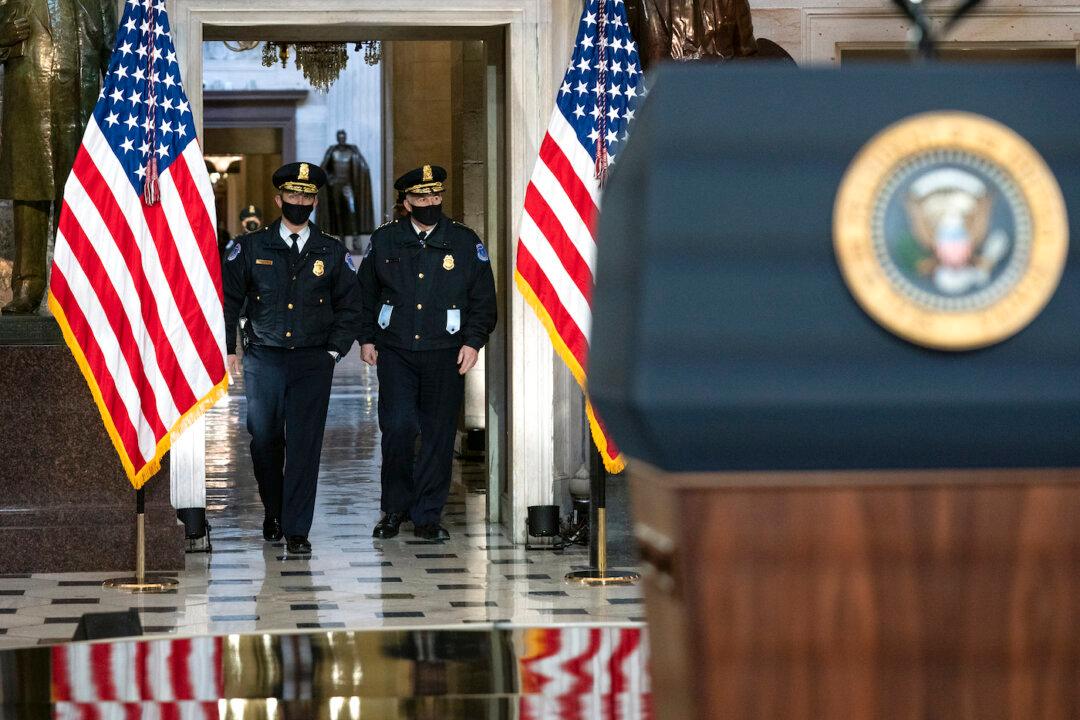U.S. Capitol Police Chief Tom Manger and House Sergeant at Arms William Walker are working to identify and root out police officers who might pose “insider threats,” they told lawmakers on Tuesday.
During a hearing before members of the House Appropriations Committee, Walker said that his office has developed an “insider threat awareness program” to identify “insider threats and employees who do lose their compass.”





